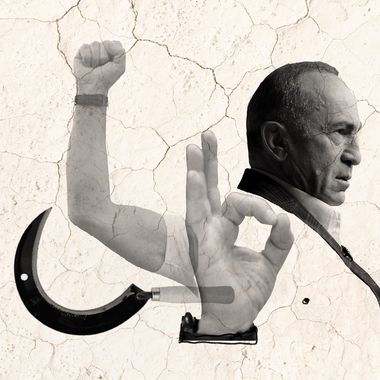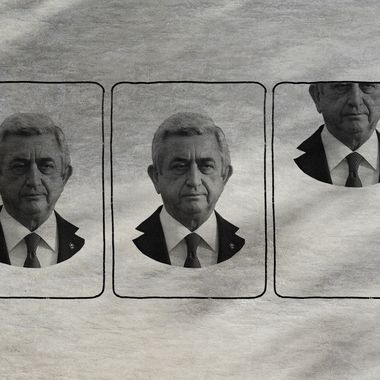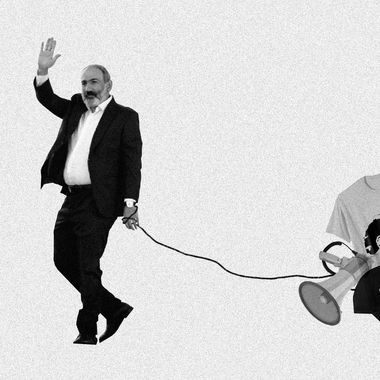Tue Oct 19 2021 · 8 min read
Municipal Elections Bring Prospects of Coalition-Building

By Harout Manougian
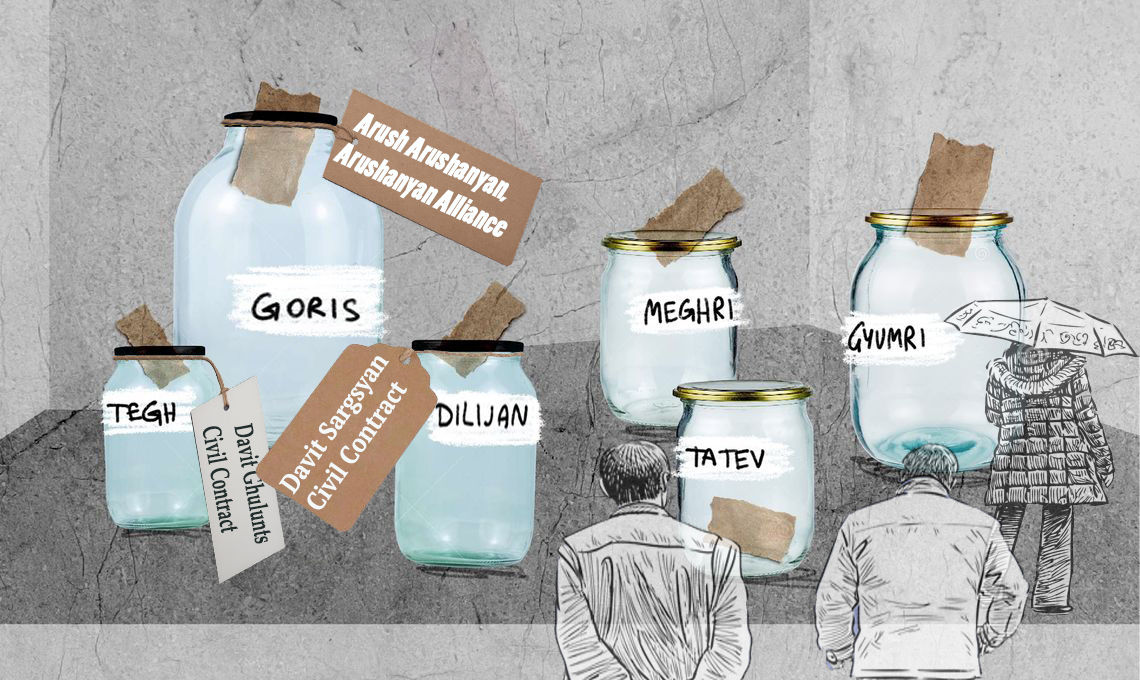
The June 20, 2021 parliamentary election had left Armenia’s political field polarized into two camps, with Nikol Pashinyan’s Civil Contract Party on one side and the alliances of the previous two presidents—Robert Kocharyan and Serzh Sargsyan—on the other. The 22 other political parties that took part failed to meet the minimum threshold and were left with zero seats in the National Assembly.
On Sunday, October 17, 2021, residents of Gyumri, Dilijan, Goris, Meghri, Tatev and Tegh went to the polls for the second time in five months to choose their favorite political party. A previous EVN Report article provides the backdrop under which these elections were held. This time, the results were more varied.
Tegh

Tegh, in Syunik region, was the only city in which the Civil Contract Party actually increased its vote share slightly compared to June, from 61% to 65%. The municipality consists of seven villages and is the most rural of the six cities that held proportional city council elections on Sunday. Past polls and election results indicate that Civil Contract has the highest support in rural areas. The current Acting Mayor Davit Ghulunts, from the Civil Contract Party, will stay in the role, this time with an elected mandate.
The fact that only two parties registered in Tegh reveals the organizational capacity limits of Armenia’s political parties; if a third had registered, they would have been able to gain seats even if they didn’t meet the 4% municipal threshold. The fact that the only other party to register here was Mane Tandilyan’s Country To Live Party establishes them as a real player, even though they are a new party with no seats in parliament. Tandilyan and Mesrop Arakelyan, who founded the Country To Live Party together, both formerly served as Minister of Labor and Social Affairs under Pashinyan.
Dilijan

Nikol Pashinyan was born in Ijevan, the capital of Tavush region, which gives his party a kind of home court advantage in the nearby city of Dilijan. Here again, Acting Mayor Davit Sargsyan, who was appointed by Pashinyan as a party loyalist in February 2021, will get to stay in the role, though the Civil Contract Party’s support was eroded somewhat compared to June, from 63% to 58%.
The big story in Dilijan is how varied the new city council will be. Although Civil Contract will receive a majority of the seats, there will also be smaller parties with seats at the table. The Country To Live Party’s candidate list was the only one to be led by a woman, Armine Hovhannisyan. The Citizen’s Decision Social-Democratic Party was formed in 2018. They participated in the 2018 and 2021 parliamentary elections but received less than 1% of the vote both times, failing to cross the threshold. The two seats they won in Dilijan mark the first time they have ever succeeded in electing a representative, an important milestone.
Tatev

It is in Tatev that things start to get more interesting. The Civil Contract Party dropped from the 62% it collected in June to just shy of a majority, at 49.9%. The two other parties released a joint statement that warned that the Civil Contract Party is trying to inch up to a majority through a recount.
Here it becomes important to fully understand how the mayor selection process works under Armenia’s proportional system. If no party has a majority of the seats, at the first session of the new city council, council members will hold an open vote for mayor. In order to get elected, a candidate would need to get an outright majority, i.e. 8 votes, given that there are 15 seats. If no candidate gets at least 8 votes, then the city council members will get to vote again, but only among the two candidates that received the most votes in the first round. In this second round, the candidate with the most votes wins, even if it is less than 8.
One could assume that each party’s city council members would vote for their own mayoral candidate in the first round, which would take Civil Contract and Shant Alliance into the runoff. In this case, the two Country To Live Party councillors would effectively get to decide who the next mayor will be. If they switch their votes to Shant Alliance, together they would overtake Civil Contract. A Deputy Mayor position for Country To Live might be part of the coalition agreement. If the two Country To Live councillors don’t vote at all, they would effectively hand the mayoralty to Civil Contract.
The Shant Alliance Nationalist Party was founded in 2021 by Shahen Harutyunyan, the son of Shant Harutyunyan, a Soviet-era political dissident.
Goris

The race in Goris was the worst loss for the Civil Contract Party. Their vote share was reduced from the 53% they got in June to 35%. What makes the loss sting so much was that the incumbent mayor, Arush Arushanyan, who heads the Arush Arushanyan Alliance, has been in pre-trial detention on electoral violation charges, related to the June parliamentary election, since the summer and throughout the campaign period. The ruling party tried to paint him as a criminal during the campaign, neglecting the fact that he has not actually been convicted. Then, on Election Day itself, a large number of police officers were sent to raid the Arushanyan Alliance’s party headquarters. The Ombudsman’s Office released a statement on Facebook that was critical of the police actions, underscoring the importance of guaranteeing the political rights of all election participants.
Meghri

While Goris is seen as the biggest loss of the night for the Civil Contract Party, they actually took a slightly lower vote share in Meghri. As in Tatev, no one party was able to secure a majority of the seats in Meghri. Here, however, the Civil Contract Party came in second to Aram Sargsyan’s Republic Party. Back in 2017, the two were coalition partners as part of the Way Out Alliance. It will be interesting to watch how the voting for mayor will play out here. Civil Contract’s Ararat Tumanyan has been the Acting Mayor since July, after the previous mayor was elected as an MP with the Armenia Alliance. Mathematically, he could still stay on if the four city councillors from the Liberal Party and Country To Live Party throw their weight behind him in the second round, but that will be a hard deal to broker. The Republic Party will also likely seek their support. This specific mayoral selection process will provide a lot of insight into the future directions of political alignment and coalition-building that could be mirrored in the future in other cities and at the national level.
Gyumri
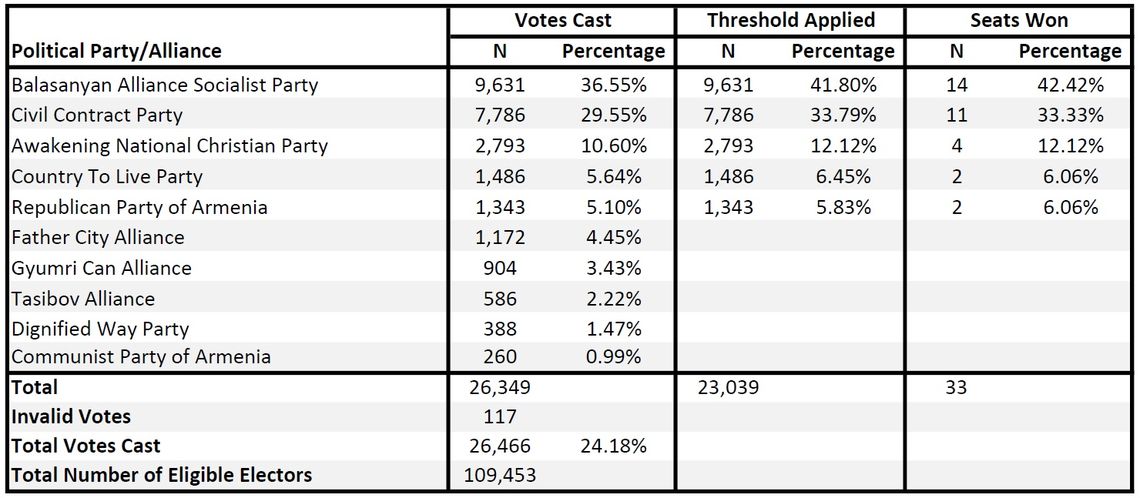
The election in Gyumri was a shining example of the success of the Government’s recent electoral reforms. Back in 2016, Gyumri held its first ever proportional city council election, under rules that had been written by the Serzh Sargsyan government. Those rules handed the Balasanyan Alliance a majority of the seats with only 35% of the vote. The warped law resulted in a boycott of council sessions by the opposition.
This time, a restructured Balasanyan Alliance got roughly the same number of votes as in 2016. However, they will get only 14 out of the 33 city council seats, in closer proportion to their vote share. The threshold was lowered from 6% to 4% for political parties and 8% to 6% for alliances. Also, a bonus seat provision for the largest party was eliminated.
Samvel Balasanyan, the incumbent mayor, doesn’t actually top the list that bears his name; the Balasanyan Alliance Socialist Party’s mayoral candidate is Vardges Samsonyan. The only way he will not go on to become the next mayor is if all the other parties unite around Civil Contract, which is not going to happen. Still, it will be interesting to observe the mayoral selection vote at the first session of city council, to see if any of the smaller parties, specifically the Republican Party of Armenia, vocalize support for Samsonyan.
The Father City Alliance was a personal project of Levon Barseghyan, an incumbent city council member that got elected with the GALA Party in 2016. Barseghyan also heads the Asparez Journalists Club. Had he centered his team on a single political party, instead of an alliance of two parties, they would be subject to a lower 4% threshold, instead of 6%. This oversight ended up shutting him out of the new city council and costing his own seat.
More Local Elections on the Horizon
Municipal elections will continue this fall, with two more rounds on November 14 and December 5. On November 14, three cities will be holding proportional city council elections. In Kapan, the capital of Syunik region, there are only two parties registered: the Civil Contract Party and the Shant Alliance Nationalist Party. The incumbent mayor, Gevorg Parsyan, is heading the Shant Alliance list. In Ijevan, the capital of Tavush region, the two registered parties are Civil Contract and the Armenian Revolutionary Federation. In Stepanavan, in Lori region, there are three parties participating: Civil Contract, Prosperous Armenia and the Armenian National Congress.
There will be a much larger wave on December 5, with 36 municipalities holding proportional city council elections. They are:
-
Aragatsotn region: Ashtarak (regional capital), Aparan, Talin, Metsatsor, Arevut
-
Ararat region: Artashat (regional capital), Ararat, Masis, Vedi
-
Armavir region: Armavir (regional capital), Araks, Baghramyan, Khoy, Metsamor, Vagharshapat (Etchmiadzin), Parakar
-
Gegharkunik region: Gavar (regional capital), Martuni, Sevan, Vardenis
-
Lori region: Vanadzor (regional capital), Tumanyan, Spitak, Pambak
-
Kotayk region: Hrazdan (regional capital), Abovyan, Garni, Tsaghkadzor, Nairi
-
Shirak region: Akhuryan, Amasia, Ashotsk, Artik
-
Vayots Dzor region: Yeghegnadzor (regional capital), Jermuk, Vayk
-
Tavush region: Noyemberyan
Parties have until October 31 to register their candidate lists to participate in the December 5 round.
Independence | Magazine Issue N11
The Levon Ter-Petrosyan Administration: 1991-1998
By Hovhannes Nazaretyan
Independent Armenia’s first president was Levon Ter-Petrosyan. This article chronicles his rise to power and the major challenges and shortcomings of his administration.
The Robert Kocharyan Administration: 1998-2008
By Lusine Sargsyan
Independent Armenia’s second president was Robert Kocharyan. This article chronicles his rise to power and the major challenges and shortcomings of his administration.
The Serzh Sargsyan Administration: 2008-2018
By Astghik Karapetyan
Independent Armenia’s third president was Serzh Sargsyan. This article chronicles his rise to power, the major challenges and shortcomings of his administration and his eventual resignation.
The Nikol Pashinyan Administration: 2018-Present
By Gohar Abrahamyan
Armenia’s current Prime Minister came to power in 2018 following nationwide protests. This article chronicles his rise to power, the major challenges and shortcomings of his administration.


